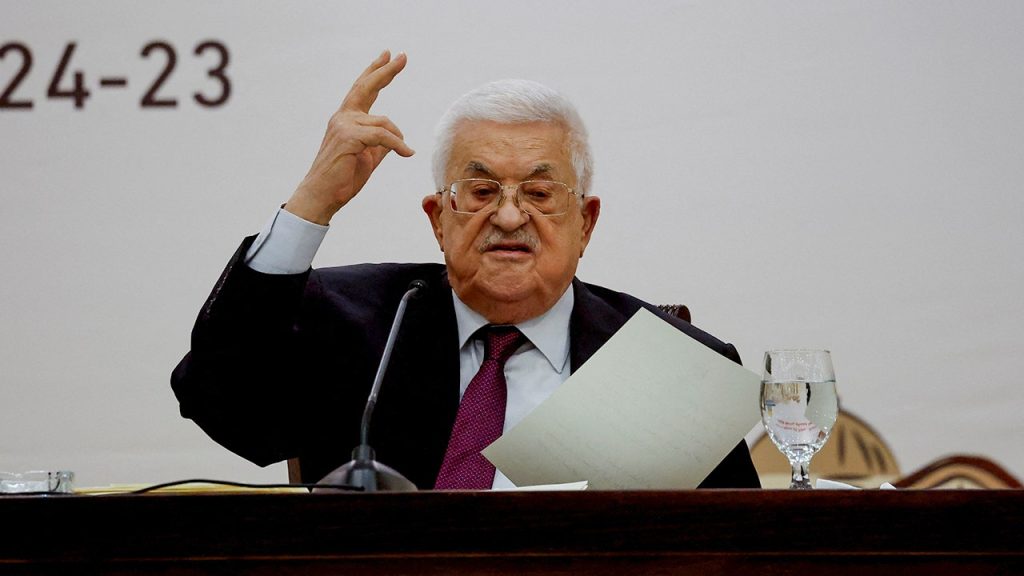World Leader Appeals for Peace and Palestinian Statehood Amid Gaza Crisis
In a powerful address to the United Nations General Assembly, Palestinian Authority President Mahmoud Abbas received enthusiastic applause as he articulated his vision for peace and Palestinian sovereignty. Speaking virtually after being denied a U.S. visa, Abbas condemned Israel’s military campaign in Gaza while expressing readiness to assume governance responsibilities in the territory. His speech came amid significant diplomatic developments, with several European nations recently recognizing a Palestinian state, adding momentum to Abbas’s demand for “full membership in the United Nations.” The Palestinian leader emphasized that his government had recognized Israel’s right to exist in both 1988 and 1993, and continues to acknowledge this reality despite ongoing conflicts.
The Palestinian Authority president outlined a clear governance proposal for Gaza, stating his organization is “ready to bear full responsibility for governance and security” of the territory. This represents a significant position shift in regional politics, as the PA has not controlled Gaza since 2007 when Hamas assumed de facto authority. Abbas stressed that under PA governance, “Hamas would not have control” and would need to surrender its weapons. His vision describes “a modern civilian state that is free of violence, weapons and extremism, one that respects law, human rights and invests in people, development, technology and education — not in wars and conflict.” This governance approach aims to address Israeli security concerns while providing Palestinians with legitimate self-governance.
While extending diplomatic openings, Abbas maintained firm positions on key Palestinian demands, particularly regarding Jerusalem, which he described as “the jewel of our hearts and our eternal capital.” His declaration that “Palestine is ours… We will not leave our homeland. We will not leave our lands” illustrates the emotional and historical significance of territorial claims to Palestinians. Abbas also expressed willingness to engage with various international partners in peace efforts, specifically mentioning readiness “to work with U.S. President Donald Trump and with the Kingdom of Saudi Arabia and France, the United Nations and all partners to implement the peace plan.” This marks a notable diplomatic outreach amid the ongoing humanitarian crisis in Gaza.
The Palestinian leader drew a sharp distinction between his administration’s approach and that of Hamas, stating that the October 7 attacks on Israel “do not represent the Palestinian people, nor do they represent their just struggle for freedom and independence.” This condemnation of violence was coupled with accusations against Israeli settlers and military forces operating in the West Bank, whom Abbas claimed have increased attacks on Palestinian civilians and property. He described witnessing settlers who “burn homes and fields, they uproot trees and attack villages and attack unarmed Palestinian civilians” allegedly with protection from Israeli forces. These allegations highlight the complex dynamics of the conflict beyond Gaza, particularly in contested West Bank territories.
Abbas’s speech reflected growing frustration with the international community’s inability to implement meaningful solutions despite decades of resolutions and peace initiatives. He pointedly noted that the United Nations has passed “more than 1,000 resolutions… not one of them was implemented,” underscoring the perception among Palestinians of being abandoned by global governance institutions. His appeal comes as Israel has deepened its military operations in Gaza City and has discussed the possibility of annexing the West Bank, developments that have heightened tensions throughout the region. Abbas specifically rejected Israeli Prime Minister Netanyahu’s concept of what the Palestinian leader termed “Greater Israel,” though Netanyahu’s office declined to comment on these characterizations.
The address represented a complex balancing act for Abbas, condemning what he described as Israel’s “genocide, destruction, starvation and displacement” while simultaneously rejecting antisemitism and attempting to separate criticism of Israeli policies from anti-Jewish sentiment. His statement that “we reject confusing the solidarity to the Palestinian cause and the issue of antisemitism, which is something that we reject based on our values and principles” attempts to navigate the charged discourse surrounding the conflict. As world powers debate the path forward, Abbas’s speech underscores the entrenched positions, deep historical grievances, and urgent humanitarian concerns that continue to challenge peace efforts in one of the world’s most persistent conflicts. With the UN General Assembly recently approving a plan to implement a two-state solution, Abbas’s address highlights both the possibilities and obstacles facing any comprehensive resolution.














